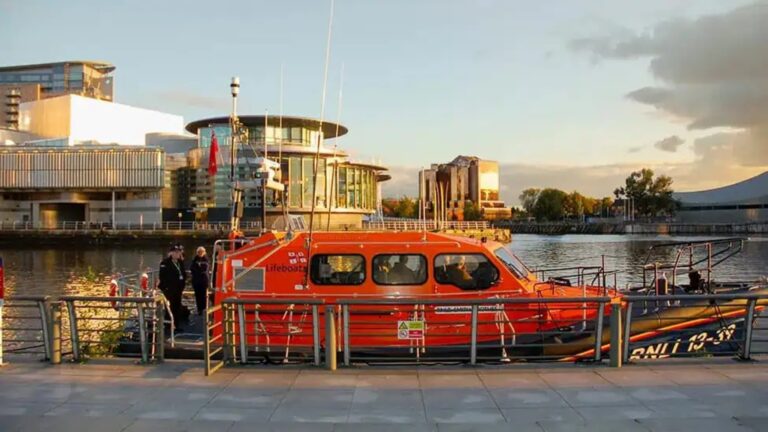
The lifeboat embarked on a 200 nautical mile journey from Fleetwood, Lancashire, to Salford Quays using HVO supplied by Certas Energy during its RNLI 200 ‘Coast To Cobbles’ event, which took place earlier this month (12 October).
Thanks to the 2,500 litre fill that took place in Fleetwood in preparation for Coast To Cobbles, the RNLI lifeboat will save approximately six tonnes of carbon emissions compared to using gas oil (red diesel).
Following 200 years of RNLI lifesaving across the North West, the event was a celebration of the lifeboat crew and the communities that they support.
Against a backdrop of growing demand for renewable alternative diesels, across the transport and haulage, construction, and agriculture and farming sectors, the current cost of HVO has never been closer than it is now to diesel.
The fuel performs well in cold conditions, making it optimal for fuelling marine crafts.
Proud of the move to sustainability
Kevin Latcham, operations manager at Certas Energy and crew member of the RNLI at Hoylake, said: “The shift we’ve seen towards HVO use this past year has been outstanding.
“It’s been wonderful to see companies of all sizes actively working to reduce their carbon footprint.
“Fuelling the RNLI vessel for this historic celebration not only commemorates 200 years of service but also signals a shift towards a more sustainable future in marine operations.
“As a member of the crew I was lucky enough to be onboard the Coast To Cobbles lifeboat for this historic moment. And as a member of the Certas Energy team, I am especially proud to be part of this move towards sustainability.”
Image credit: RNLI
